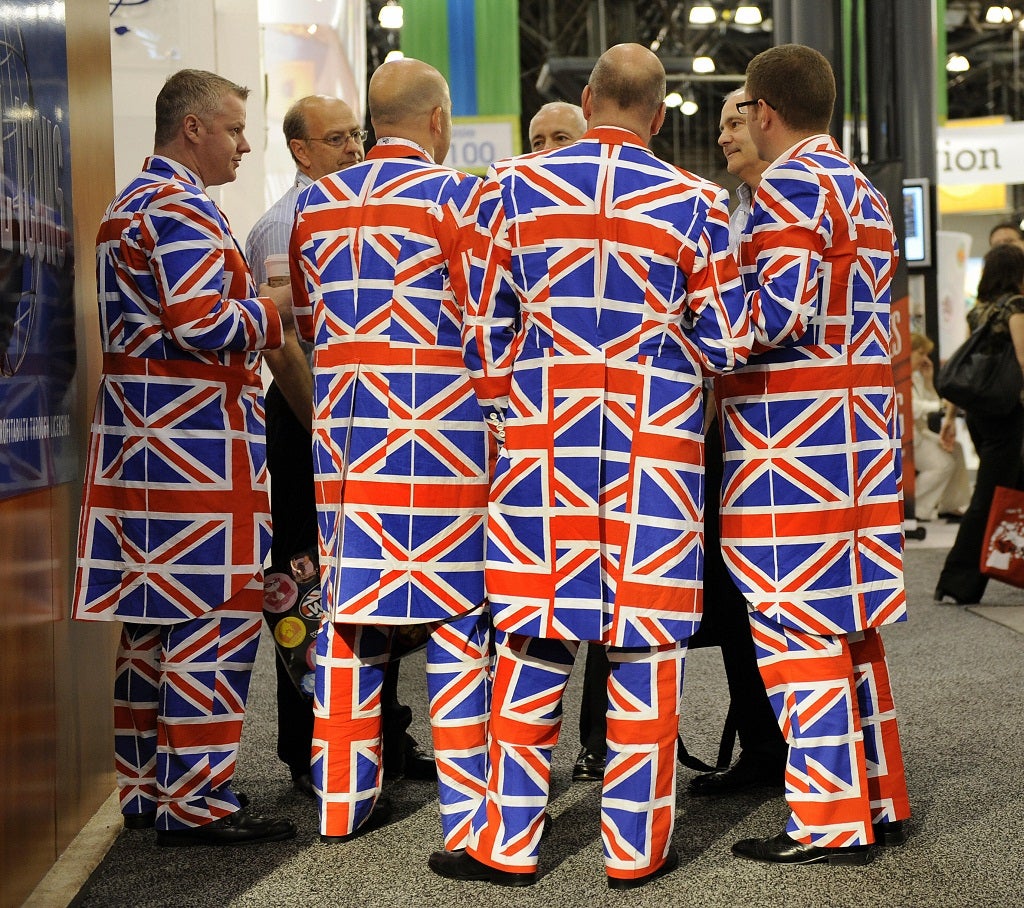We've chatted you up: British phrases go transatlantic
As a blog charts the rise of British terms entering US English our writer weighs up who's responsible for more linguistic atrocities - us or the Yankees?

Your support helps us to tell the story
From reproductive rights to climate change to Big Tech, The Independent is on the ground when the story is developing. Whether it's investigating the financials of Elon Musk's pro-Trump PAC or producing our latest documentary, 'The A Word', which shines a light on the American women fighting for reproductive rights, we know how important it is to parse out the facts from the messaging.
At such a critical moment in US history, we need reporters on the ground. Your donation allows us to keep sending journalists to speak to both sides of the story.
The Independent is trusted by Americans across the entire political spectrum. And unlike many other quality news outlets, we choose not to lock Americans out of our reporting and analysis with paywalls. We believe quality journalism should be available to everyone, paid for by those who can afford it.
Your support makes all the difference.In the UK we spend a lot of time using words that have been imported from the States like “bar” instead of “pub” or “season” instead of “series”. We then spend even more time moaning about the fact that we are using these Americanisms.
But now it seems the trend might be reversing with more and more British English words, or Britishisms, making their way into America slowly but surely, like a plane load of Brits plodding through customs at JFK.
Ben Yagoda, a professor of English at the University of Delaware, set up a blog last year to chart the rise of Britishisms entering US English. So far he has found more than 150 ranging from the upmarket (“bespoke”) to the slangy (“gormless”), from the sporting (“on the back foot”) to the domestic (“do the washing up”) .
According to Yagoda, who uses Google Ngram to measure the popularity of a word, the recent reversal in the migratory flow of language is mostly due to the Internet. It has also been influenced by the huge popularity in the US of the Harry Potter books and British TV shows like Downton Abbey, Top Gear and Doctor Who.
Whatever the reasons, now that things have balanced out a little, it feels like it is high time to do a little comparison between the two sets of invading idioms to find out just who has exported the more annoying terms.
A fitting place to start would be travel and transport. The US weighs in straight away with the deeply annoying “deplane” for disembarking or just plain getting off an aeroplane (that’s “aeroplane” by the way not “airplane”). Also it has bequeathed us the pointless and irritating phrasal verb wait on as in “I’m waiting on a train” rather than waiting for one.
Onto eating and shopping. We’ve given the Americans “gastropub” for a bar with a fine-dining experience whereas they’ve given us “ eatery”. They’ve also given us “take out” instead of “take away”, as if our prepositions aren’t good enough for them. In shopping they’ve given us “mall” instead of “shopping centre”, “store” instead of “shop” and “cart” instead of “trolley”. We’ve given them “sell-by-date” instead of their “expiration date”, “greengrocer” instead of “produce store” and “opening hours” instead of just “ hours”.
Honours even I think although “gastropub” has to take the biscuit for most annoying, conceptually rather than linguistically.
What about colloquialisms and slang? Here both languages bring out their heavyweights of annoyingness. Britsh offerings include “ cheers”, “knackered”, “nutter”, “faff” and “kerfuffle”, all of which show an alarming preoccupation with exhausted and confused mental states and drinking.
In return the US offers up such irritant gems as the “least worst option” for what we might call the “best of a bad bunch”, or “ my bad” instead of plain old “sorry”. Americans seem to be particularly annoying when asking you to work something out, opting for phrases like “go figure” and “you do the math”.
Sex Slang
Similarly they like to register their own level of aggravation with their choice of idioms, like saying “period” and “enough already” when they can’t take anymore. In fact Americans seem to tack the prize-winningly annoying “already” on to anything to indicate closure (there’s another one) as in “alright already”, “ stop already”, “I got it already” or “enough already with saying already”, all of which should of course be delivered in a whiny New York drawl.
Sex is a prime area for slang and it seems we’ve been exporting some of our romantic, or not so romantic, terms across the pond. These include “chat up” for their “hit on” and “snog” for their “ make out”; “fancy” for their “like” and even “dangly bits” for their, well, you know what it means. Finally we’ve given them “ metrosexual”, which always conjures up images of David Beckham in a sarong; again we win the prize for annoying concept.
In return for all this transatlantic sexual freight what has America given us? Just one word – “fanny” instead of “bum”. However the sheer potential for awkward mistakes this entails more than makes up for its paucity of colleagues. Ironically the British idiom for “mistake”, “cock up”, is now entering American English, according to Yagoda, so you could perhaps use the following mantra as an aide memoir to avoid embarrassing slips: “don’t cock up using bum instead of fanny.”
Better keep that as an internal mantra though rather than repeating it aloud on the New York subway during your first business trip to the States.
Join our commenting forum
Join thought-provoking conversations, follow other Independent readers and see their replies
Comments